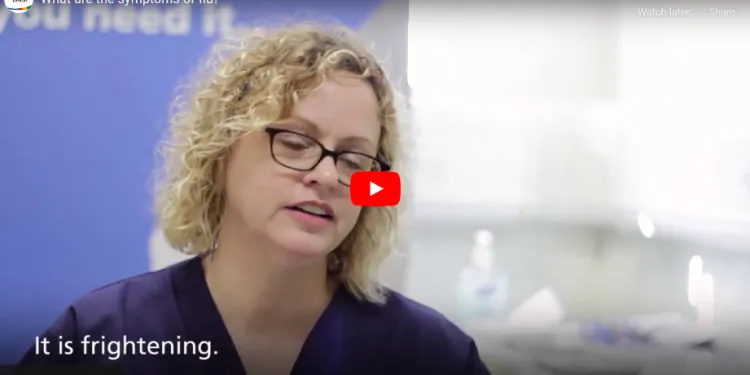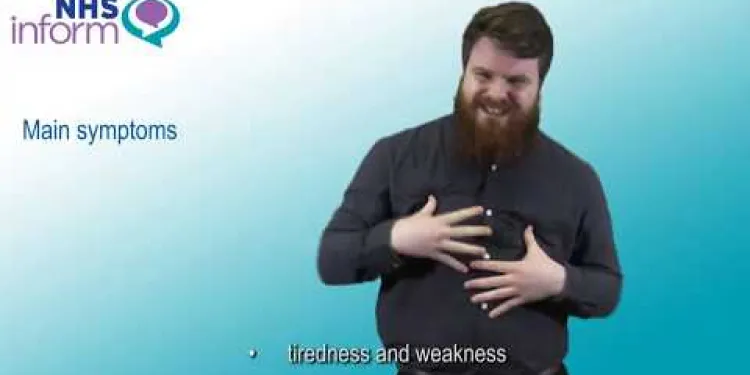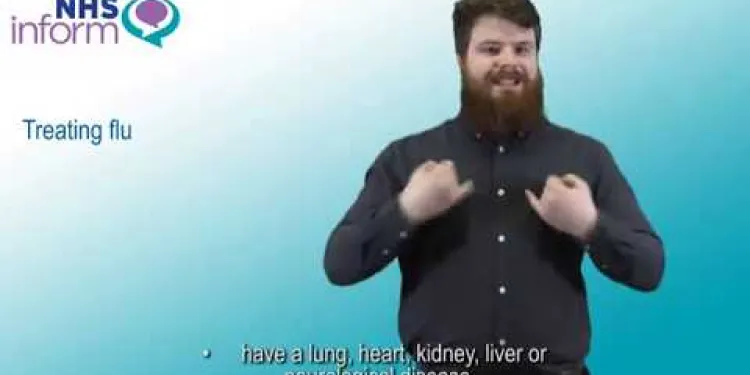Find Help
More Items From Ergsy search
-

What are the symptoms of flu ?
Relevance: 100%
-

Symptoms of flu (influenza)
Relevance: 99%
-

What are the symptoms of Super Flu?
Relevance: 95%
-

What are the symptoms of H3N2 flu?
Relevance: 95%
-

Can the flu vaccine give you the flu?
Relevance: 75%
-

Can the flu jab give me the flu?
Relevance: 73%
-

Can the flu vaccine give me the flu?
Relevance: 73%
-

Just the flu? | NHS
Relevance: 72%
-

Can the flu jab give you the flu?
Relevance: 72%
-

Treating flu (influenza)
Relevance: 71%
-

Is the Super Flu contagious?
Relevance: 71%
-

Flu can be fatal
Relevance: 70%
-

What is Super Flu?
Relevance: 70%
-

Is the winter flu jab effective against all flu strains?
Relevance: 70%
-

How is Super Flu diagnosed?
Relevance: 70%
-

Understanding Seasonal Flu: Prevention and Treatment
Relevance: 68%
-

What is the H3N2 flu strain?
Relevance: 68%
-

What treatments are available for Super Flu?
Relevance: 67%
-

How effective is the flu vaccine?
Relevance: 66%
-

How long does H3N2 flu typically last?
Relevance: 65%
-

Are there any side effects to the flu vaccine?
Relevance: 64%
-

Is the flu vaccine free for everyone in the UK?
Relevance: 64%
-

Flu vaccinations for people with a learning disability
Relevance: 63%
-

Is flu season going to be bad in 2026?
Relevance: 63%
-

What is the winter flu jab?
Relevance: 63%
-

Latest Advice on Managing Respiratory Illnesses During Flu Season
Relevance: 63%
-
Does the flu vaccine protect against COVID-19?
Relevance: 62%
-

How does one recover from Super Flu?
Relevance: 62%
-

Are there any side effects of the winter flu jab?
Relevance: 62%
-

Is Super Flu a new strain of virus?
Relevance: 62%
-

Who should get the winter flu jab?
Relevance: 61%
-

Can Super Flu cause a pandemic?
Relevance: 61%
-

Where can I find more information on Super Flu?
Relevance: 61%
-

Who is most at risk from Super Flu?
Relevance: 61%
-

Can pregnant women get the flu vaccine?
Relevance: 60%
-

What causes Super Flu?
Relevance: 60%
-

Is the flu jab necessary for healthy individuals?
Relevance: 60%
-

Can animals get Super Flu?
Relevance: 60%
-

Has Super Flu occurred in the past?
Relevance: 60%
-

What precautions can be taken to avoid Super Flu?
Relevance: 60%
What are the Symptoms of Flu?
Common Symptoms
Flu symptoms in the United Kingdom are typically similar to those experienced globally. Common symptoms include:
- High fever (38°C or higher)
- Chills and sweats
- Headache
- Persistent dry cough
- Muscle and joint aches and pains
- Sore throat
- Runny or stuffy nose
- Severe fatigue and tiredness
Gastrointestinal Symptoms
While less common, some individuals in the UK who contract the flu may experience gastrointestinal symptoms such as:
- Nausea
- Vomiting
- Diarrhoea
Duration of Symptoms
Typically, flu symptoms last for about a week, though the fatigue and cough can persist for a couple of weeks more. It’s important to rest and stay hydrated during this period to aid recovery.
When to Seek Medical Help
In most cases, the flu will resolve without medical intervention. However, it is important to seek medical help if you experience severe symptoms such as:
- Difficulty breathing or shortness of breath
- Chest pain or pressure
- Sudden dizziness or confusion
- Severe or persistent vomiting
- Flu-like symptoms that improve but then return with a fever and worse cough
High-risk groups, including young children, elderly individuals, pregnant women, and those with pre-existing health conditions, should be especially vigilant and seek professional advice if they suspect flu infection.
Preventing Flu
To reduce the risk of contracting the flu, the NHS recommends annual flu vaccinations, especially for high-risk groups. Additionally, maintaining good personal hygiene, such as frequent handwashing, and avoiding close contact with infected individuals can help prevent the spread of the virus.
What is the Flu?
Common Signs of Flu
The flu is a sickness you can catch. It has signs like:
- High temperature (38°C or more)
- Feeling cold and sweaty
- Head hurts
- Dry cough that won't go away
- Aches in muscles and joints
- Sore throat
- Runny or blocked nose
- Feeling very tired and weak
Stomach Problems
Sometimes, the flu can also cause stomach problems, like:
- Feeling sick
- Being sick (vomiting)
- Runny poo (diarrhoea)
How Long Does the Flu Last?
The flu usually lasts about a week. But, feeling tired and the cough can last a bit longer. It's important to rest and drink a lot of water to get better.
When to Call a Doctor
Most of the time, the flu gets better on its own. But, go to a doctor if you have serious signs like:
- Hard to breathe or breathe fast
- Pain in your chest
- Feeling very dizzy or mixed up
- Throwing up a lot and can't stop
- Flu signs that get better but come back with a fever and bad cough
People who are more at risk, such as young kids, older people, pregnant women, and people with health problems should get help if they think they have the flu.
How to Stop Getting the Flu
You can help stop the flu by getting a flu jab every year. This is especially important for people at risk. Also, wash your hands often and stay away from people who are sick to stop the spread of the flu.
Frequently Asked Questions
What are common flu symptoms?
Common flu symptoms include fever, chills, cough, sore throat, runny or stuffy nose, muscle or body aches, headaches, and fatigue.
How can I differentiate between flu and a common cold?
Flu symptoms tend to come on suddenly and are more severe, such as high fever and body aches, while common cold symptoms develop gradually and are usually milder.
Is it normal to have gastrointestinal symptoms with the flu?
Yes, although less common, some people, particularly children, may experience nausea, vomiting, or diarrhoea with the flu.
Can the flu cause a sore throat?
Yes, a sore throat is a common symptom of the flu.
Will I always have a high fever with the flu?
Not always, but many people with the flu will experience a high fever, often above 38°C.
Is a cough a symptom of the flu?
Yes, a cough is a common symptom of the flu and can be persistent and dry.
What kind of headaches occur with the flu?
Headaches associated with the flu tend to be severe and can be felt across the entire head.
Can I have the flu without a fever?
Yes, it is possible to have the flu without a fever, but it is less common.
Are body aches a sign of the flu?
Yes, muscle or body aches are a common symptom and can be quite severe.
How long do flu symptoms typically last?
Flu symptoms usually last for about one to two weeks but can occasionally persist longer.
Should I be concerned if I have difficulty breathing with the flu?
Yes, difficulty breathing can be a sign of a serious complication and you should seek medical attention immediately.
Can fatigue from the flu be severe?
Yes, fatigue can be severe with the flu and may last for several weeks even after other symptoms have subsided.
Is it typical to lose appetite when you have the flu?
Yes, loss of appetite is a common symptom of the flu.
Can the flu cause chest discomfort?
Yes, you may experience chest discomfort or even chest pain due to persistent coughing and inflammation.
Should I see a doctor if I suspect I have the flu?
If you are at high risk for complications, such as being very young, elderly, pregnant, or having underlying health conditions, you should seek medical advice. For most healthy individuals, rest and supportive care at home are usually sufficient.
What are common flu symptoms?
The flu is a sickness like a cold. Here are things people feel when they have the flu:
- Fever: You feel very hot.
- Cough: You may cough a lot.
- Sore throat: Your throat might hurt.
- Runny or stuffy nose: Your nose might drip or feel blocked.
- Body aches: Your body might hurt.
- Tiredness: You might feel really tired.
If you feel these things, you might have the flu. It is good to rest and drink water. You can also ask a grown-up for help if you feel very sick.
When you have the flu, you might feel hot and get chills. You could also cough and have a sore throat. Your nose might be runny or feel blocked. Your muscles might hurt, and you could have a headache. You might also feel very tired.
How can I tell if I have the flu or a cold?
It can be hard to know if you have the flu or a cold because they are a bit similar. But there are some differences that can help you figure it out.
With the flu, you might feel very tired and your body may ache all over. You can also get a high fever, chills, and a bad headache. The flu can make you feel very sick, very fast.
A cold usually comes on slowly. You might get a runny nose, a sore throat, and watery eyes. You might cough and sneeze, but you won't usually have a fever or feel as tired as with the flu.
If you are not sure what you have, it’s a good idea to talk to a doctor or a nurse. They can help you understand what is going on and how to feel better.
Flu makes you feel sick very fast with a high fever and sore body. A cold comes on slowly and is not as bad.
Is it normal to have tummy problems with the flu?
When you have the flu, you might sometimes have a tummy ache, feel sick, or need to go to the toilet more. This can happen to some people.
If your tummy feels bad some things can make you feel better. Try drinking water and eating plain foods like rice or toast.
If you feel really sick, ask a grown-up or doctor for help.
Yes, sometimes people, especially kids, can feel sick to their stomach, throw up, or have a runny tummy when they have the flu.
Can the flu make your throat hurt?
Yes, having a sore throat is normal when you have the flu.
Will I always get a high fever with the flu?
When you have the flu, you might get a high fever, but not always. Some people do, and some don't.
Here are things you can do to feel better:
- Rest a lot
- Drink lots of water and juice
- Take medicine if your doctor says it's OK
If you feel very sick, tell an adult or go see a doctor.
People with the flu often get a high fever.
Their temperature is usually higher than 38°C.
Can a cough mean you have the flu?
If you have the flu, you might cough a lot.
Here are some tools to help:
- Ask a grown-up to read with you.
- Use pictures to understand better.
- Listen to a story about the flu.
Yes, coughing is normal when you have the flu. It might not go away quickly and can feel dry.
What headaches happen when you have the flu?
When you have the flu, you might get a headache. This means your head can hurt.
Things that can help:
- Rest a lot to help your body feel better.
- Drink water so you don't get too thirsty.
- You can also ask a grown-up if you can take medicine.
Flu headaches hurt a lot. You can feel the pain all over your head.
Can you have the flu without getting a fever?
Yes, you can have the flu without having a fever, but it doesn't happen a lot.
Do body pains mean you have the flu?
If your body hurts, you might have the flu. The flu can make your muscles feel sore. It is like when you have worked a lot and your body feels tired. If you feel like this, it is a good idea to tell a grown-up or see a doctor.
Helpful Tips:
- Rest well so your body can get better.
- Drink lots of water to stay healthy.
Yes, your muscles or body can hurt when you're sick. It can hurt a lot.
How long do you feel sick with the flu?
When you have the flu, you might feel sick for about a week. Some people feel better in a few days, while others might feel sick longer. Rest and drink lots of water to feel better.
If you want help, try using a calendar to mark each day you feel sick. You can also ask someone you trust to help you keep track.
Flu symptoms usually last for about one to two weeks. Sometimes, they can last a bit longer.
Is it bad if I can't breathe well when I have the flu?
If you have the flu and you find it hard to breathe, it's important to tell a grown-up or a doctor. They can help you feel better.
Try to stay calm and take slow, deep breaths. It can also help to sit or stand up straight.
Using a fan or opening a window might make it easier to breathe.
Always let someone know if breathing is hard for you. It's okay to ask for help!
Having trouble breathing can be very serious. It is important to get help from a doctor right away.
Can feeling very tired from the flu be bad?
Yes, the flu can make you very tired. This tiredness can last for weeks, even after you start feeling better.
Do you stop feeling hungry when you have the flu?
When you have the flu, you might not feel like eating. This is normal. It is okay if you do not want food for a little while.
What can help?
- Drink water or juice so you stay hydrated.
- Eat small snacks if you feel a bit hungry.
- Rest a lot to help your body get better.
Yes, not feeling hungry is normal when you have the flu.
Can the flu make your chest feel hurt?
Sometimes, when you cough a lot, your chest can hurt or feel uncomfortable. This happens because of swelling inside your chest.
Do I need to see a doctor if I think I have the flu?
If you feel very sick, it is a good idea to see a doctor.
Here are some signs to visit the doctor:
- High fever (very hot body)
- Trouble breathing (hard to breathe)
- Pain in chest (chest hurts)
- Feeling dizzy or confused (head feels funny)
If you are very worried, you can ask an adult to help you call a doctor.
You can also use a thermometer to check your temperature. If it is very high, tell someone.
If you might get really sick, like if you are very young, older, having a baby, or have other health problems, you should talk to a doctor. For most healthy people, just resting and taking care of yourself at home is usually enough.
Useful Links
Have you found an error, or do you have a link or some information you would like to share? Please let us know using the form below.
-->
This website offers general information and is not a substitute for professional advice.
Always seek guidance from qualified professionals.
If you have any medical concerns or need urgent help, contact a healthcare professional or emergency services immediately.
Some of this content was generated with AI assistance. We’ve done our best to keep it accurate, helpful, and human-friendly.
- Ergsy carfully checks the information in the videos we provide here.
- Videos shown by Youtube after a video has completed, have NOT been reviewed by ERGSY.
- To view, click the arrow in centre of video.
- Most of the videos you find here will have subtitles and/or closed captions available.
- You may need to turn these on, and choose your preferred language.
- Go to the video you'd like to watch.
- If closed captions (CC) are available, settings will be visible on the bottom right of the video player.
- To turn on Captions, click settings .
- To turn off Captions, click settings again.
More Items From Ergsy search
-

What are the symptoms of flu ?
Relevance: 100%
-

Symptoms of flu (influenza)
Relevance: 99%
-

What are the symptoms of Super Flu?
Relevance: 95%
-

What are the symptoms of H3N2 flu?
Relevance: 95%
-

Can the flu vaccine give you the flu?
Relevance: 75%
-

Can the flu jab give me the flu?
Relevance: 73%
-

Can the flu vaccine give me the flu?
Relevance: 73%
-

Just the flu? | NHS
Relevance: 72%
-

Can the flu jab give you the flu?
Relevance: 72%
-

Treating flu (influenza)
Relevance: 71%
-

Is the Super Flu contagious?
Relevance: 71%
-

Flu can be fatal
Relevance: 70%
-

What is Super Flu?
Relevance: 70%
-

Is the winter flu jab effective against all flu strains?
Relevance: 70%
-

How is Super Flu diagnosed?
Relevance: 70%
-

Understanding Seasonal Flu: Prevention and Treatment
Relevance: 68%
-

What is the H3N2 flu strain?
Relevance: 68%
-

What treatments are available for Super Flu?
Relevance: 67%
-

How effective is the flu vaccine?
Relevance: 66%
-

How long does H3N2 flu typically last?
Relevance: 65%
-

Are there any side effects to the flu vaccine?
Relevance: 64%
-

Is the flu vaccine free for everyone in the UK?
Relevance: 64%
-

Flu vaccinations for people with a learning disability
Relevance: 63%
-

Is flu season going to be bad in 2026?
Relevance: 63%
-

What is the winter flu jab?
Relevance: 63%
-

Latest Advice on Managing Respiratory Illnesses During Flu Season
Relevance: 63%
-
Does the flu vaccine protect against COVID-19?
Relevance: 62%
-

How does one recover from Super Flu?
Relevance: 62%
-

Are there any side effects of the winter flu jab?
Relevance: 62%
-

Is Super Flu a new strain of virus?
Relevance: 62%
-

Who should get the winter flu jab?
Relevance: 61%
-

Can Super Flu cause a pandemic?
Relevance: 61%
-

Where can I find more information on Super Flu?
Relevance: 61%
-

Who is most at risk from Super Flu?
Relevance: 61%
-

Can pregnant women get the flu vaccine?
Relevance: 60%
-

What causes Super Flu?
Relevance: 60%
-

Is the flu jab necessary for healthy individuals?
Relevance: 60%
-

Can animals get Super Flu?
Relevance: 60%
-

Has Super Flu occurred in the past?
Relevance: 60%
-

What precautions can be taken to avoid Super Flu?
Relevance: 60%


